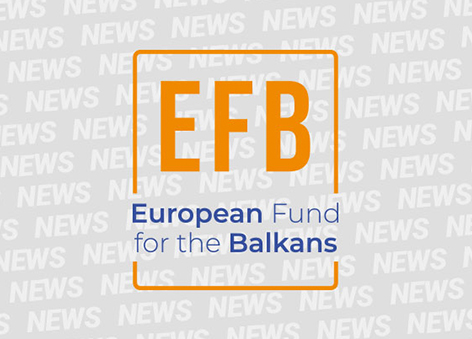
18.11.2015 All News
The European Policy Centre in cooperation with the Balkans in Europe Policy Advisory Group and the European Commission Directorate-General for Neighbourhood and Enlargement Negotiations will organise the Policy Dialogue “EU enlargement to the Balkans: Taking stock and moving forward” on November 18, 2015 in Brussels. The session will include Simon Mordue (Director for Strategy and Turkey, DG Neighbourhood and Enlargement Negotiations, European Commission), Johann Sattle (Head of the Western Balkans Unit, the Austrian Ministry of Foreign Affairs), Hedvig Morvai (Executive Director of the European Fund for the Balkans), and Florian Bieber (Professor of Southeast European Studies and Director of the Centre for Southeast European Studies at the University of Graz, Austria) as speakers, and Corina Stratulat (Senior Policy Analyst, European Policy Centre) as moderator.
Under the framework of the Policy Dialogue, the Balkans in Europe Policy Advisory Group will present its latest policy brief, Western Balkans and the EU: Beyond the Autopilot Mode (Authors: Marko Kmezić, Florian Bieber with contributions from Dane Taleski, Jovana Marović, and Nikolaos Tzifakis).
As it is noted in the brief, 16 years after the launch of the Stabilisation and Association Process with the EU, Western Balkan countries (apart from Croatia, which managed to join in 2013) are still far away from EU accession. While Montenegro continues its accession negotiations, Serbia still awaits the opening of its first negotiating chapters. After receiving candidate status in 2014, Albania is waiting for the Commission’s recommendation to open accession negotiations. Pending the outcome of upcoming extraordinary Parliamentary elections, the Commission has conditionally extended its recommendation to open accession negotiations with Macedonia. In June 2015, a Stabilisation and Association Agreement (SAA) with Bosnia and Herzegovina entered into force, while an SAA with Kosovo was signed in October 2015.
Despite these and other recent positive signals, most notably the continuation of the ‘Berlin Process’ in August 2015, Western Balkans 6 meetings, the Western Balkans Connectivity Agenda, the Declaration on the Solution of Bilateral Disputes signed by the Ministers of Foreign Affairs of the accession countries at the August 2015 Vienna Summit, and the new design of the Enlargement Progress Reports, the political messages coming from Brussels point to the conclusion that European integration of the region will not be accelerated.
At times it seems that the Western Balkans enlargement strategy is driven by EU external crisis management, i.e. the Union’s response to the economic crisis, the crisis in Ukraine, the refugee crisis, etc., rather than by a coherent enlargement strategy prepared by the Directorate-General for Neighbourhood and Enlargement Negotiations.
This policy brief addresses the EU's drained transformative leverage towards Western Balkan accession countries, on-going political tensions in Montenegro, the agonising economic situation in the region, the main outputs of the Vienna EU-Western Balkans Summit, the Declaration on the Solution of Bilateral Disputes in the region, redesigned accession countries’ Progress Reports, and the impact of the refugee crisis on the Western Balkans region. The main message of this policy brief is that further efforts are needed to speed up the accession process.
The latest BiEPAG policy brief is available at the following link.







